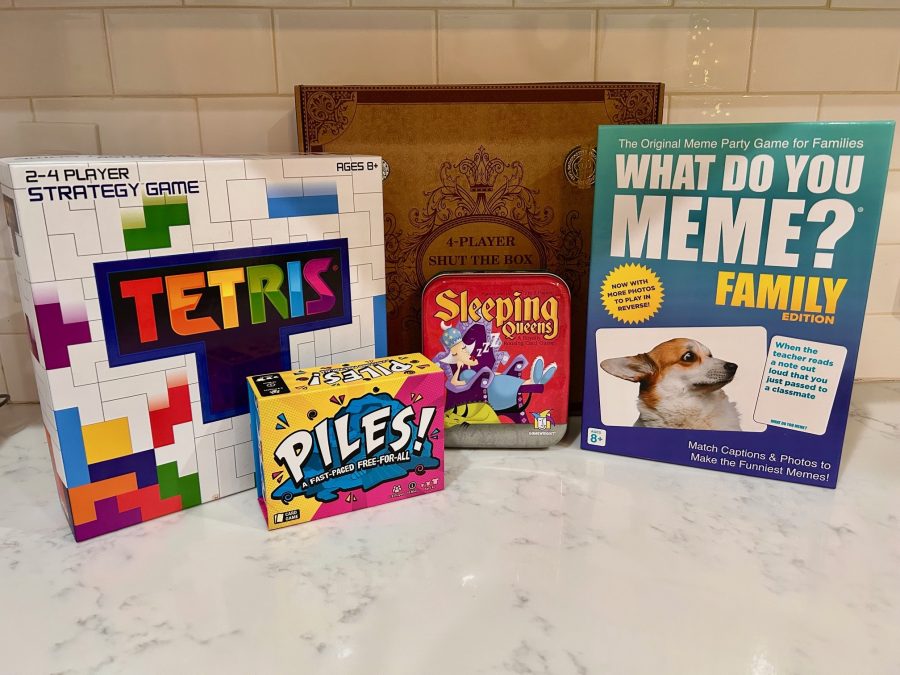How many of you have children coming home from school completely defeated, stressed, and overwhelmed? Chances are, if you have children in public school from grades 3-12, my guess would be ALL OF YOU. We can thank the Louisiana Student Standards (our “revamped” Common Core) for this. This monstrosity of a curriculum has the expectations of our children being able to perform at a level WAY above their age and capabilities. High stakes testing starts in third grade and they are asked to do things like read four sources and write large paragraphs being able to synthesize the information they read and include evidence in their writing … THIRD GRADE. Can they even retain all the information read from four sources and analyze them at a level to where they can pull information from all sources on a common topic to develop a well-written paragraph? Why do they need to do that in THIRD GRADE? If that is the expectation of a third grader, you can only imagine the great heights the children have to reach when they get into higher grade levels.
This is becoming a HUGE problem.
Teachers are extremely burnt out and stressed due to the amount of pressure put on them from higher ups (I know because I am one). The expectations are given to us, and we are expected to meet them. But how when they’re so UNREALISTIC? The stress amongst teachers inevitably bleeds down into the students and THAT, parents, is why your child is coming home cranky, moody, exhausted with dark circles under their eyes as if they have been possessed by the devil himself. The teachers feel defeated, the kids feel like failures, and parents are now, too, becoming highly concerned about the well-being of their kids.
We are officially going off the deep end.
Parents want to know what we can do to change this. Well here’s what we can’t change at this very moment- the Louisiana Student Standards. They are here to stay (for now) and there is nothing anyone can do about it in the state of Louisiana. Unless we get an army of people to push back (which could happen over time), but for NOW they’re here, it’s real, and complaining is going to do nothing.
So we’re stuck. What can we do to alleviate the stress?
Parents:
MAKE them play: If your child comes home with homework, do not make them complete it right away. They have been pushed to perform at really high levels ALL DAY and the LAST thing they need to do is come home and work more. Make them go outside and play, do arts and crafts, watch their favorite TV show, play a video game, whatever they need to do to decompress for a bit – MAKE THEM. As adults, the last thing we want to do when we come home from work is to do more work; we shouldn’t have that expectation on our kids. Have the understanding that your child is being pushed beyond their limits (plus some) and help them find ways to alleviate that stress when they get home.

Support teachers: Also, support your child’s poor teacher. Lord knows we need it! Not only are we given these crazy high expectations, but we also have to deal with discipline. Because the expectations are so high, the pressure is on. This causes students to act out and behavior gets worse. It’s a downward spiral from there. Don’t point fingers at the teacher; we’re just trying to do our jobs. Teach your child how to manage emotions in a way that isn’t disrespectful or disruptive to the class.
Give rewards: When my third grader comes home with homework, I let her do it when she’s ready and we get after it. Usually she likes freshly baked cookies as her reward, so I throw some in the oven and they bake while she works. When she’s done, she gets to eat her cookies. Give your child an end goal or something to work towards that will give them positive motivation to finish. If they get frustrated, let them take a break and come back to it with a clear head.
Encourage them to try their best: You know what your child is capable of. If you believe they are A students, then hold them up to that standard. If your child struggles constantly, let them know that all you want from them is to try their best. My daughter is typically an A student, but she will make herself physically ill and breakdown into tears if she isn’t making an A … in third grade. That’s not good. We’ve had numerous talks about her trying her best and not worrying about making perfect grades. I do want her to learn resilience, but not to the point of having meltdowns. Balance.
 Teachers:
Teachers:
Manage your own emotions: You are the ones in the classroom. You are the ones teaching the standards in a way that pushes the rigor and you are striving to reach an unrealistic goal. You have to understand that the expectations are UNREALISTIC for each grade level. Now, some students will perform at that level, but MOST of them will not. You, also, have to learn how to manage emotions in a way that isn’t disrespectful to the class. Students do not deserve to be yelled at or casted down upon because they did not do well on the test. Of COURSE they didn’t, look at what they’re expected to do. Teachers need to develop more of a growth mentality than a “I must meet the expectations” mentality. Not all students will meet the goal or even come close, but is it right for us to get angry, and frustrated, and work them even harder that will send everyone into a tailspin? No. That’s not the answer. Change the way you teach and / or encourage them to do the best they can. Shoot for individual GROWTH, not for every single student to meet the standards. This mentality will alleviate pressure on yourself, as well as the students.
Homework: If you have any say so, do not give homework. Let them go home and spend time with family and friends. Teach what you can in the classroom and pick it back up the next day. Don’t take precious time away from their families and their time to do what makes them happy. I know some schools require teachers to give homework. If so, send them with something they can easily conquer that won’t send the whole family into WWIII. My child comes home with homework and oftentimes gets frustrated with it … after she just left school being frustrated. And all the parents say … ”not cool!”
Include brain breaks into your lesson: Some teachers have a little more freedom to teach how they want with the standards. I’m lucky enough to be at a school where that freedom is given (to a degree). I do my best to balance the hard stuff with the fun / less challenging stuff. If I’m creating a lesson, I always try to include a mixture of both and it helps to not overwhelm everyone. However, some schools require teachers to follow a scripted curriculum that they cannot stray from. They have no freedom, they have no say so, they are forced to teach in a way they may not agree with. In this case, brain breaks are a MUST. There are tons of brain break ideas on Pinterest and YouTube such as getting up to stretch, coloring, journaling, sing a song together as a class, SOMETHING. Those poor kids are sitting in a desk all day being worked to the bone, they need brain breaks.




















SCHOOL BOARD PLEASE LISTEN!!! AND BECOME A TRUE ADVOCATE FOR OUR CHILDREN AND FOR RIGHT!
Hello,
As an educator in the state of Louisiana, I have some issues with the information presented in this post. While the suggestions for teachers and parents are FANTASTIC, the information about expectations for students is grossly invalid.
The Louisiana Student Standards do not require a 3rd grade student to synthesize or compare information across four texts. In fact, the standards, as well as LEAP assessment guidance, state that a student in 3rd grade may compare or explain information in TWO texts. While the expectations of our standards are rigorous, the standards themselves are not above students’ age or capabilities.
Also, the standards themselves are not a curriculum. Some districts have adopted the Louisiana Guidebooks as an English curriculum, but the standards themselves are simply expectations. There may be issues within the Guidebooks curriculum or with the guest blogger’s district assessments that require students to produce results above the grade level standard. Fortunately, feedback can be given on those resources, AND we can still control what happens in our classroom with instruction. If a teacher recognizes that the curriculum expectations go beyond the standard expectation and voices that concern to his/her administrator, I cannot imagine a reasonable school leader would require the teacher to implement that portion of the curriculum for ALL students.
We all know that education often takes a hit – especially from those people who are not in the classroom daily and don’t understand the expectations. In order for us all to work together to move forward with what is best for our students and children, it’s imperative that CORRECT information is communicated to those stakeholders. As a well-known and impactful blog, I hope that you all will consider adjusting this post to ensure that it is communicating CORRECT information about the standards and assessment expectations for our students. Please see below the copy & pasted excerpts from the Louisiana State Standards as well as current LEAP Assessment guidance for 3rd grade.
LEAP Assessment Guidance:
Research Simulation Task: mirrors the research process by presenting two texts on a given topic. Students answer a set of selected-response
questions about the texts and then write an extended response about some aspect of the related texts (e.g., relationship between a series of
events, ideas, or concepts; comparison/contrast of key details; the use of illustrations in the texts).
• Literary Analysis Task: provides students an opportunity to show their understanding of literature. It asks students to read two literary texts,
answer a set of selected-response questions about the texts, and write an extended response that compares and/or explains key ideas or
elements in the texts (e.g., central idea/message, contribution of illustrations, characterization)
LSS:
RI3.8 Describe the logical connection between particular sentences and paragraphs in a text (e.g., comparison,
cause/effect, first/second/third in a sequence).
RI3.9 Compare and contrast the most important points and key details presented in two texts on the same topic.
You describe yourself as an “educator.” Are you an elementary school teacher?
While the ELA test may only require students reading 2 sources, the social studies does require students to analyze up to 4 sources.
From the assessment guide for 3rd grade:
LEAP 2025 Social Studies assessments have a set-based design.
• One to four related source documents provide the context from which students answer sets of four to six questions.
• Questions ask students to use content knowledge and the source documents to show an understanding of social studies content and concepts.
Sets may contain items aligned to GLES across more than one category or within a single category.
• Item sets include selected-response questions (multiple choice, multiple select) and some sets culminate with a short constructed-response
question.
Additionally, schools that are part of the CIR grant must follow guidebooks as scripted, refer to the implementation walkthrough for clarification.
I believe the only thing “off” about this article is the 4 sources synthesizing information is Social Studies, not ELA. The rest is valid. Our expectations for our kids are too high for their age level. 3rd graders do not need to know how to do that.
Excellent! Thank you for sharing.
I thought Moms Blog posts were supposed to be apolitical. But as all of these opinions in this article are stated as fact, here is my opinion: This goes too far. In any event, it used to be years ago (baby boomer and GenX) that students were expected to be able to synthesize all of the information mentioned here. At some point, people forgot to teach kids that feeling frustrated and that not being the best or smartest is part of life. Now that everyone is a champion, we’ve decided that real academics can’t be the way because some kids might feel badly and won’t be able to have time to play fortnite when they get home.
I am an educator of 35 years and definitely agree with you on most topics. However, we can’t tell these parents that nothing can be done…sometimes it is ONLY the parents that can get things done. They never listen to teachers, so that is not an option! I have seen parents accomplish many things for the school systems. Also, teachers are told that their class of students have to achieve mastery. It is not individual, it is everyone in your class… when I went to school to become a teacher and until several years ago, we were given the grade level standards and then we could teach the way we knew worked and for each individual child. That is what teaching was. Not any more! Now everything is scripted for the teachers and the students, and a lot has to be done through group work! Group work is great but they also need to be able to think on their own! There is definitely value in this teaching but it should not be the end all! I think it is time to START over! Parents need to get this started. Teachers cannot say anything negative unless they want to lose their job! I still say a starting point could be our state standards and teaching and student materials. If Louisiana-the 50th state in education, would completely follow what the top 10 states are doing in education, we might at least have a fighting chance! Unfortunately we can’t go lower than 50, so let’s try to go for the top…let’s look at what those states are doing and also ask for teacher advice! I bet they even use textbooks that they bought!
You’re totally correct our expectations are way too high children are individuals they’re not carbon copies
Such a good blog. Completely disagree with MAKE THEM watch TV or play video games to de-stress, research shows it hinders, does not help, but everything else is spot on. TV is off limits on school nights and with all the evidence of screen addiction, we don’t expose our kids to those risks. I’d offer up play games or cook together instead.
But yes… school is nuts. Does anyone else remember having homework in PRE-K?!?!?!
I believe the statement was to make them PLAY- however they choose or however you choose to allow them as parents, not to make them watch TV or play video games.
I grew up before there was Pre-K and Kindergarten. We were dropped right into the first grade. In my school, we learned cursive in the first grade; we read print, but we wrote in cursive. From first grade through the twelfth grade the grading scale was as follows: 96-100 = A, 90-95 = B, 80-89 = C, 76-79 = D, 0-75 = F. I used the exact same heading on all of my papers for twelve years. In every class, whether vocational agriculture or science, one point was counted off for every spelling, grammar or mechanics error. We had to read aloud and memorize long passages from novels, dramas, and poems. Twice a week, through the eighth grade, we sang for an hour. All though grammar school we were involved in plays. We had, through the 8th grade, lost of recess, nearly twenty minutes in the morning, about forty minutes at lunch, and about fifteen minutes in the afternoon; and during those recesses we played, hard. No one ever spoke of homework; there were lessons to do at home . There was less stigma on being retained than there is today. No one spoke of goals, objectives, standards, etc. There were text books; teachers taught; and kids learned. Expectations were, in that milieu, high. I do not remember any of us being stressed about the expectations. We did our best to meet them, so of us better than others. We have a different generation of teachers, parents and students. The environment in which we thrived could not be sustained today.
I remember being spanked in 3rd grade because I did not indent a paragraph. I was a shy, quiet straight-A student that still remembers that act like it happened yesterday and not 50 years ago. Today teachers have to walk on eggshells around some students because their parents find fault with everything you say and do. I have been teaching for 26 years, and it is impossible to compare schools, kids, families, teachers, education, tests, and curriculum from when I was in third grade and third graders today. Nothing is the same. Before parents, teachers, and people in general try to solve parts of the puzzle, think about how the whole picture of the puzzle has changed.